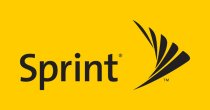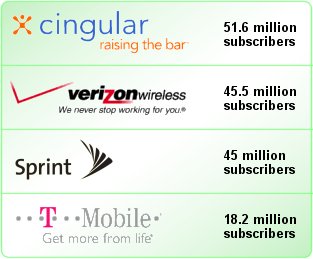|  On
August 3rd, the Federal Communication Commission (FCC) approved
the merger of Sprint and Nextel. The two companies said they
will complete the merger on August 12th and begin trading
under the unified company’s stock symbol “S”
on Monday August 15th. On
August 3rd, the Federal Communication Commission (FCC) approved
the merger of Sprint and Nextel. The two companies said they
will complete the merger on August 12th and begin trading
under the unified company’s stock symbol “S”
on Monday August 15th.
The combined
company has about 35 million subscribers plus 10 million customers
through affiliates and partners such as Virgin Mobile and
Boost Mobile. That’s right folks. Virgin Mobile uses
Sprint’s network and Boost Mobile uses Nextel network.
Now,
all this sounds like this is happening at the flip of a switch.
Believe me when I say it is not going to feel like that for
their subscribers. Sprint and Nextel run on completely different
network technologies. Cingular and AT&T Wireless, for
example used and still use Global System for Mobile Communications
(GSM). So the merging of those two networks is a lot easier.
Despite it being easier, Cingular is still in the process
of merging these two networks two years later.
 On
the other hand, Sprint uses Code-Division Multiple Access
(CDMA)
and Nextel uses iDen, a proprietary technology developed by
Motorola. These technologies are not compatible with each
other. The two company’s services will pretty much operate
independently while Sprint converts Nextel’s towers
to use CDMA. Over time Nextel will become essentially a product
line from Sprint. This doesn’t sound like a “merger
of equals” as the two companies have put it. On
the other hand, Sprint uses Code-Division Multiple Access
(CDMA)
and Nextel uses iDen, a proprietary technology developed by
Motorola. These technologies are not compatible with each
other. The two company’s services will pretty much operate
independently while Sprint converts Nextel’s towers
to use CDMA. Over time Nextel will become essentially a product
line from Sprint. This doesn’t sound like a “merger
of equals” as the two companies have put it.
So,
in reality, what does this mean for current customers of Sprint
Nextel right now? The answer is… not much. The logo
on you bill will probably change. Sprint users are not able
to use Nextel services and vice-versa. In comparison, when
Cingular bought AT&T Wireless, subscribers of each network
were able to roam onto the others networks for free. It remains
to be seen if Sprint and Nextel customers will be able to
call each other for free, like Cingular and AT&T Wireless
customers were able to do almost immediately after the merger.
Related
Links:
• sprint.com
• nextel.com
|


